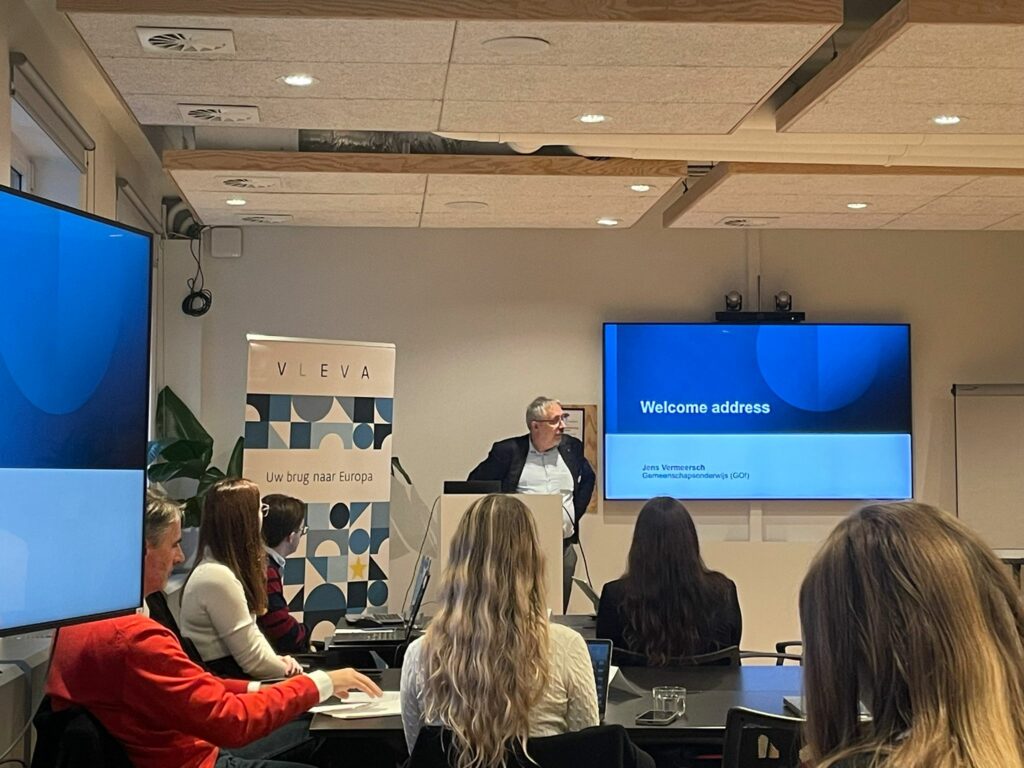EARLALL at Lifelong Learning Week 2024
27/11/2024

This week, EARLALL participated in the 14th edition of Lifelong Learning Week (LLLWeek), hosted by the Lifelong Learning Platform (LLLP) in collaboration with civil society actors and Members of the European Parliament. This year’s theme, “21st Century Challenges for the Educator Profession: A Call for System Change,” highlighted the urgent need for systemic reform in education to support educators in an ever-evolving landscape.
LLLWeek is a platform to exchange ideas, share best practices, and align priorities with other organisations. As a member of the Life Learning Platform, EARLALL attended a number of events, showcasing its contribution.
Leadership Reunion and Stakeholders’ Forum
During the Leadership Reunion and Stakeholders’ Forum on 18 November, EARLALL joined Presidents and Directors of the LLLP member organisations for a discussion on advocacy strategies and the 10-year review of the LLL Manifesto. EARLALL presented its priorities for 2025, focusing on inclusion, digitalisation, reskilling, and other key areas.
Rethinking AI Integration in Teacher Education
Later in the day, the Stakeholders’ Forum provided an open platform for participants to engage in lively exchanges and collaborative discussions. This annual forum is a crucial part of the Life Long Learning Week, as it encourages partnerships and innovative ideas within the lifelong learning community.
Organised on 19 November by the Association for Teacher Education in Europe (ATEE), this policy workshop explored the implications of artificial intelligence (AI) for teacher education. It focused on strategies to prepare educators for AI-driven environments and foster systemic change.
Cornelia Connolly from Galway University and T.J. Ó Ceallaigh from the University College Cork School of Education delivered insightful presentations, highlighting the transformative potential of AI in teacher training. They shared practical approaches and emphasised the need for educators to acquire new competencies to navigate AI-enhanced instructional environments.
Teacher educators, policymakers, and institutional leaders participated in action-oriented discussions, crafting policy recommendations and strategies to support teachers in leveraging generative AI for more effective teaching and learning.
Teacher Shortages in the EU: A Shared Challenge and Good Practices
This workshop was organised on 19 November by GO! (Flemish Community Education) and VLEVA (Liaison Agency Flanders-Europe), with the support of the BXL Education Network, an informal Brussels-based network dedicated to education, of which EARLALL is a member.
The session addressed the critical issue of teacher shortages across Europe, flagged by European Commission President Ursula von der Leyen as one of the most critical challenges for the EU. After presentations of best practices from different European countries, the discussions centred on the structural nature of these shortages and their impact on education quality and workforce development.
During the opening, Susanne Conze, Head of the Unit for ‘Country Analysis’ remarked on the importance of supporting teachers’ mobility and improving working conditions in education throughout the EU. “Teacher shortages, driven by low pay, poor conditions, and high turnover, are big challenges across Europe”, she highlighted. “Supporting teachers through mobility and development is key to improving education and ensuring a sustainable future.”
After the opening remarks, the event featured diverse real-world best practices to address teacher shortages across Europe. Jens Vermeersch from GO! onderwijs van de Vlaamse Gemeenschap (Flemish Community Education) outlined efforts to solve principal shortages through targeted training and talent recruitment. Jelena Bloch, from the German Academic Exchange Service (DAAD) in North Rhine Westphalia, Germany highlighted how international teacher education programmes can boost the profession’s appeal and enhance education quality. Vlastimil Volák, from the Training College and Secondary School of Electrical Engineering in the Pilsen region, in Czechia shared examples of collaboration between schools and universities to strengthen teacher preparation, while Malene Nyenstad from the Hundested School in Denmark showcased concrete initiatives to retain newly trained teachers at the school level.
For the second part, participants were divided into working groups to discuss the best practices presented, and strategies to improve working conditions, enhance teacher training, and increase the attractiveness of the profession.
Stay tuned for updates as EARLALL builds on the outcomes of LLLWeek to shape its future initiatives!




